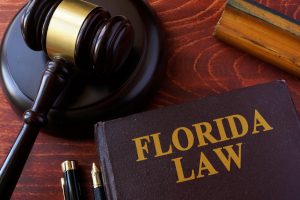Understanding the Role of the Personal Representative of a Florida Estate

In Florida, the term “personal representative” is used instead of “administrator” or “executor” in the probate process. Put more simply, the personal representative is in charge of ensuring that the assets in the deceased person’s estate are properly resolved and closed.
A personal representative can be a private entity, a bank, or an individual, and is appointed by the judge in probate court unless the decedent named a specific individual in their will. There is an order of preference for who the personal representative can be, and a full, detailed list of the statute can be found by clicking here. The judge will still have to decide if the individual nominated in the will can dutifully carry out the responsibilities facing them.
Understanding the Role of the Personal Representative of a Florida Estate
If you have been appointed as the personal representative of an estate in Florida, you will need to know what your role entails and what is expected of you, and that’s what this blog is for. Here’s what you need to know:
- Even if you have been named or nominated to be a deceased’s personal representative, the judge will still have to make a determination as to whether you are fit and able to do everything that you need to do according to the following statutory qualifications:
- Generally, only Florida residents may serve as personal representatives. If the individual is not a legal Florida resident, they may not be able to serve in this role.
- The individual must be 18 years old or older and they have to have the mental and physical ability to perform their duties.
- The individual cannot serve if they have ever been convicted of a felony.
- A personal representative’s responsibilities are as follows:
- Identify and secure the assets in the deceased’s estate. You must track down and gather all assets in preparation for administering them.
- You must identify the creditors that the deceased owes debts to. You must also notify these creditors that the estate has been opened.
- You are in charge of paying off the valid debts the deceased owed and disputing invalid ones.
- You must pay the taxes owed by the deceased person as well as file any outstanding tax returns.
- You are in charge of paying all the court fees and other associated fees that are incurred during the probate process using money from the estate.
- Distribute or administer the assets to the beneficiaries and heirs of the estate.
- Close the estate and the probate process.
- Typically, the creditors and probate fees are paid first, and then the beneficiaries and heirs are paid afterward with the money left over.
- If an individual is found to have been mismanaging the estate, they will be liable for the damages they cause the beneficiaries of the estate.
Understanding the Role of the Personal Representative of a Florida Estate — If you need further information on this important role, contact our office using the info below.
Contact Us
If you are an individual that’s unfamiliar with or intimidated by the above information, do not worry. Personal representatives often engage legal counsel to help guide them through the Florida probate process, and here at Stivers Law, we have been helping individuals in their role for years. Understandably, there are a lot of legal nuances that must be followed according to Florida Probate Law. You are not alone! Let us guide you through your responsibilities and represent you if issues with the probate process arise. Contact us today to schedule a consultation or call us at 305-456-3255! Hablamos Español!



